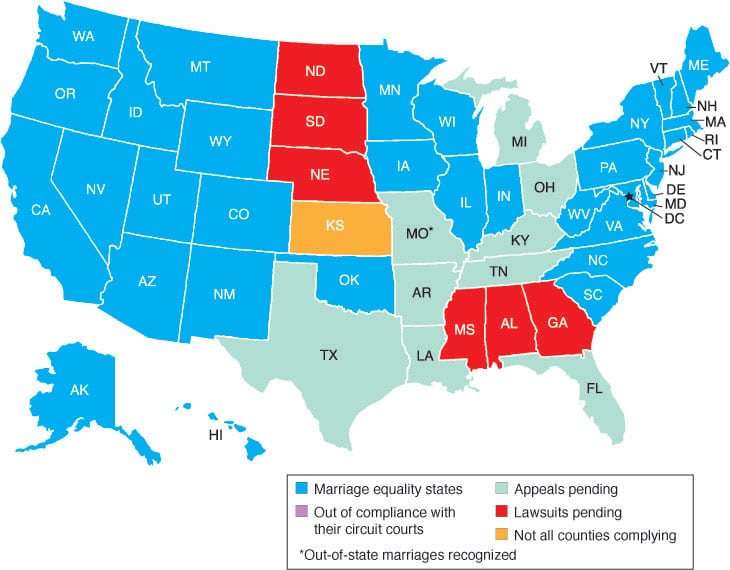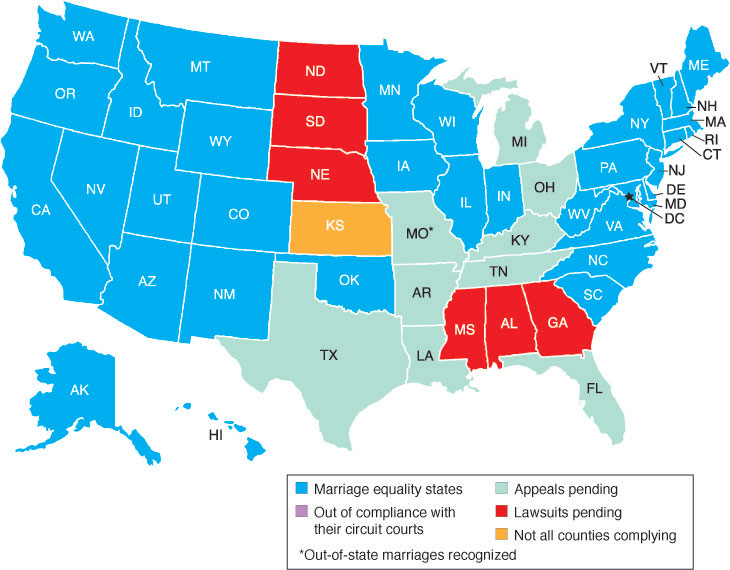Although Montana became a marriage equality state on Nov. 20, the 9th Circuit is allowing the state to continue its appeal.
While the state’s Republican attorney general is doing what he can to restore discrimination, the Montana’s Democratic governor is taking steps to ensure newly married couples are recognized and afforded the responsibilities of all married Montanans.
The court set Feb. 27 as the date the state must file its arguments challenging the ruling that struck down the marriage ban and March 30 as the date for plaintiffs to respond.
The 9th Circuit accepted the Montana case so it can tell the state they meant their discrimination is just as illegal as it is elsewhere in its jurisdiction. In its Nevada and Idaho rulings, the court threw out marriage discrimination because it was based on animus and violates due process and equal protection. The same court struck down Prop 8 in California, a decision that was upheld by the U.S. Supreme Court.
Kansas
Although about half the counties in Kansas have begun issuing marriage licenses, the state isn’t recognizing them. The state claims it is following the court order to issue licenses, but the order said nothing about issuing valid licenses or standing behind the licenses it’s selling to its citizens.
Until ordered to do so, the state is refusing newly married same-sex couples benefits ranging from being able to change the last name on their driver’s licenses to spouses of state employees receiving health benefits.
Michigan
After Michigan’s marriage law was struck down and before the state obtained a stay, about 300 couples were married. Now that the 6th Circuit declared discrimination against same-sex couples is legal, the state is not recognizing those marriages.
“From a legal standpoint, because the marriages rested solely on the District Court’s erroneous decision, which has now been reversed, it is as if the marriages never existed,” the state argues.

















